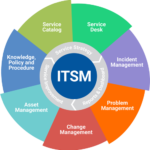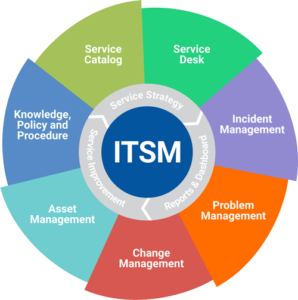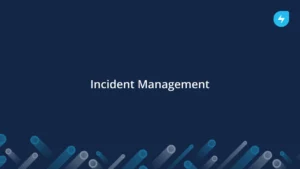A change agent is a person from inside or outside an organization who helps an organization, or part of an organization, to transform how it operates.
They can be thought of as a catalyst for change, a person who can make changes happen by inspiring and influencing others. A change agent will promote, champion, enable, and support changes to be made in an organization. They focus on people and the interactions between them. A change agent inspires and influences key individuals to make the changes necessary for the transformation, including changes to their desires, attitudes and behaviours. Change agents fulfil one of the critical roles in the discipline of organizational change management (OCM), which is important to ensure the success of any business change.
The terms ‘agent of change’ and ‘change advocate’ are synonymous with the term ‘change agent’. A ‘change champion’ has a similar role to a change agent. However, a change champion can be just a figurehead whereas a change agent often works ‘behind the scenes to achieve success. Change agents are not directly involved in the IT service management (ITSM) change management process, as this process focuses on specific changes to systems and services.
What are the roles within Organizational Change Management (OCM)?
There are many roles involved in making changes within an organization, a change agent is just one of the required roles. Here are some contrasts with other key roles in OCM:
Thought Leader
Thought leaders portray a vision of what the future could look like, which is also an activity undertaken by change agents. The principle difference between a thought leader and a change agent is that a thought leader will inspire others with their ideas but not necessarily follow through with actions to turn the ideas into reality. A change agent also has a role to play in inspiring others, but then will continually influence and persuade others to take the ideas forward. If necessary, they will change their approach, even modifying the idea to overcome resistance and maintain progress towards the transformational goal.
Line manager
A line manager has direct control over the individuals who work for them. Whilst they have an important role to play in acting as agents to make changes happen, they typically achieve this using command and control approaches such as assigning tasks to their staff and setting targets for achievement. Change agents typically do not have line management authority over individuals and use persuasive techniques to influence the required changes in attitudes, behaviour, and culture. These techniques used by change agents are often more successful in transformational changes than the command and control techniques typically used by line management, as they change the hearts and minds of individuals to support the change.
OCM lead
The OCM lead role is responsible for the success of the full Organizational Change Management process. This is a management role, with ownership of the OCM process, and other OCM roles reporting into them. The change agents for the transformation will report to the OCM lead. The OCM lead will set the strategy for organizational change management, which the change agents would then follow. Change agents can exist in isolation in an organization without a formal OCM approach and hence without any OCM lead.
OCM practitioner
OCM practitioners execute the OCM strategy as set by the OCM lead. A change agent can also be an OCM practitioner, working principally on change agent activities. Other OCM practitioners may act as supporting agents of change, but their activities are likely to be primarily focused on other areas such as education and stakeholder management.
OCM sponsor
Having an OCM sponsor is key to successful change. This role should be actively involved with the transformation, regularly communicating positive messages about it, gaining feedback, and ensuring understanding. This is also true of a change agent, and in some ways, an OCM sponsor is also acting as one of the agents of change. The roles can sometimes be combined, however, an OCM sponsor is often held by a senior figure in the affected organization, whereas a change agent does not require that level of authority. Combining the roles of change agent and OCM sponsor can be problematic, as individuals might to the outside world seem compliant to the changes because of the level of authority of the change agent/OCM sponsor, whilst in reality, they are resistant to the changes.
What activities does a change agent perform?
- Visibly and actively communicating why the transformation is a good idea for both the organization and individuals
- Actively engaging with individuals
- Listening to others, gaining and acting on feedback
- Understanding how different people may react and developing appropriate approaches
- Dealing with specific individuals who don’t seem supportive
- Encouraging and supporting others
- Identifying and leading other change agents
- Providing feedback and reporting issues to the Overall Change Management lead
Typical responsibilities of a change agent include the following:
- Understanding the needs of the staff in their scope of responsibility
- Understanding the aims of the transformation
- Understanding how their area of the business operates and contributes to the overall organization
- Explaining the reason for the transformation and the expected benefits
- Visibly advocating the changes required for the transformation
- Determining appropriate influencing strategies
- Disseminating information
- Influencing and persuading staff in the change agents’ scope of responsibility
- Identifying and coaching new change agents
- Liaising with other change agents
- Anticipating and dealing with areas of potential dispute or disruption
- Obtaining feedback to share with leadership and management
- Advising stakeholders and impacted individuals
- Acting as a mediator
- Reporting on progress and issues
What are the characteristics of a good change agent?
As being a change agent is an incredible responsibility, the following are the desirable qualities of a change agent:
- Enthusiastic and passionate
- Leads by example
- Easy to get on with
- Patient but persistent
- Pragmatic
- Good at getting ideas over
- Well respected by those who know them
People that identify with these are likely to make good change agents but may require training on influencing, persuading, and negotiating skills.
How do you identify someone that could make a good change agent?
In some organizations, senior managers are expected to be change agents but, unless they have the appropriate personal qualities required of a change agent, they are unlikely to be effective. Senior managers can also struggle to relinquish the command and control nature of their management role and instead use the influence and persuasion approaches associated with good change agents. The activities to implement any transformation will take place at a local level, hence success is more likely if there are change agents at every level. Staff should be identified in each area who have the right mix of skills, knowledge, and respect from their colleagues to be used as change agents in their area of the organization.
Stakeholder analysis can be useful to help with this identification. It is good practice to use a network of change agents, identifying one or more in each area of the business. Change agents in the network should come from various positions within the organization, their precise role in the organization’s management hierarchy is not important provided that each change agent is well-respected by the individuals in the area of the organization that they are expected to influence. Each change agent should also understand their area of the business and where it fits in the organization, and have strong working relationships with their colleagues.
Which is better – an internal or an external change agent?
Change agents can be existing staff in an organization (internal) or brought in from outside (external). In organizations that have no staff with the skills and experience required to be a change agent, then using an external change agent is often the only option. If this approach is used, it is important to assign someone internally to learn from the external change agent so that they can become a change agent. For the long term, it is more beneficial for change agents to be internal as they will have in-depth knowledge about the organization and its people, and have the time to build long-lasting and trusted relationships with staff. Internal change agents are also always available for use within the organization, whereas with external change agents there is always a lead time to procure and onboard them. There is a risk when using external change agents that the organization’s staff will see the change agents as a threat and unconnected with the organization. External change agents are unlikely to be there to deal with any issues that arise after the transformation has been completed. Many transformations take a year or more to complete, the costs of employing external change agents for long periods can be quite expensive.









